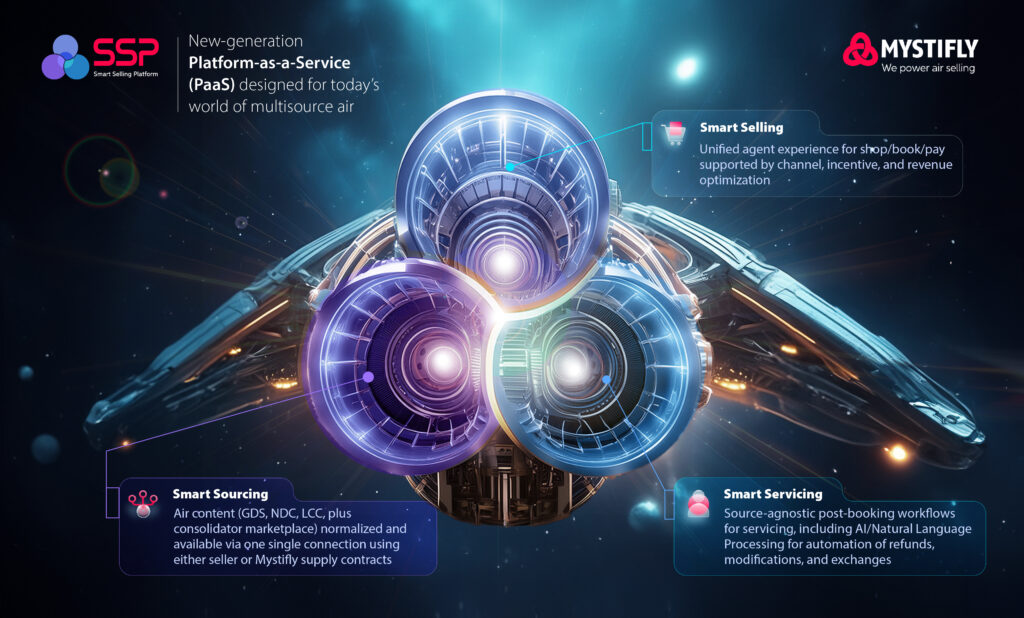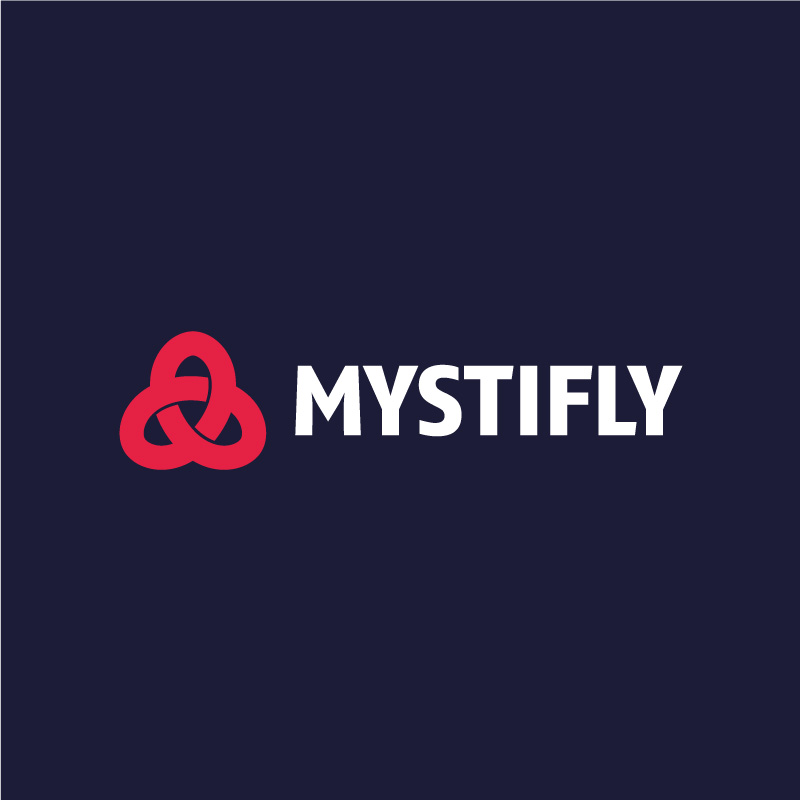Mystifly at Phocuswright, Barcelona, 2023
Team Mystifly had a fantastic time at the Phocuswright event in Barcelona! Mystifly was a sponsor and on the panel for one of the industry roundtables. The discussion was about the future of Travel Intermediaries, and we had the opportunity to be a part of it with some top experts from the travel industry.
We were joined by Alexander Gevers Deynoot from Hopper, Aaron Gowell from SilverRail Technologies, and Lorraine Sileo from Phocuswright Research, along with our own Founder, CEO and MD, Rajeev Kumar. Together, we talked about the important role of travel intermediaries and how they are shaping the future of travel.
It was a wonderful experience, and we had meaningful and insightful discussions. We all shared our thoughts and ideas on how intermediaries can bring positive changes to the travel industry. The passion for innovation and collaboration among all the participants was truly inspiring!
Some of the topics that were discussed were:
- Content search: Need for personalised search options.
- Areas of impact of generative AI and how will this impact our industry.
- Loyalty Awards – How relevant are they and what is the recall of the buyer
- Capacity – Scarcity of number of airline seats and staff
Content Search
The role of ‘search’ for a travel intermediary has evolved significantly in recent years, revolutionising the way travellers explore and book their trips. What began as a tool for Travel Sellers for aggregating information on flights and hotels has now transformed into a powerful platform that goes beyond data compilation. With access to multiple Online Travel Agencies (OTA) and Metas, or directly engaging airlines, and hotel sites, ‘search’ provides users with a comprehensive view of available options, allowing customers to compare prices, availability, and reviews in real time. This transparency empowers travellers to make clear, informed decisions and find the best deals based on their demand.
Users expect search results that precisely align with their expectations, rather than being overwhelmed by a multitude of generic options. It is no longer solely about facilitating bookings; instead, the ability to provide exceptional user experience has become the new norm incredibly crucial for an intermediary.
The ability to aggregate information from various sources and present it in a user-friendly interface has made ‘search’ an invaluable tool for travellers, as long as it provides customised and relevant output. The pivotal aspect lies in analysing the data. Intermediaries that have effectively achieved this will continue to shape the future.
Impact of generative AI
Access to real time data is critical in the decision-making process of any company in this industry. It allows businesses to operate with efficiency and keeps them growing by making conscious decisions based on what the data tells them. Today, companies that have access to data have the upper hand, but the ability to use generative AI with the help of this data will define the leaders in the industry. Many intermediaries are incorporating AI into their trip planning and recommendation alternatives.
The significant impact of AI/ML is evident in the personalised offers provided to travellers. Travel intermediaries harness the data collected from users’ behaviours to suggest offers and even curate an ancillary list tailored to their preferences. Such insights are derived from the analysis of search behaviours.
Apart from uncovering interesting travel destinations and alternatives, the travel industry can benefit in many ways, where customers are willing to pay for additional services, they may not have anticipated at first. For example: In the flight search module, we discovered that travellers are willing to pay extra for early departures and returns in order to maximise time spent in a particular destination. This gets us excited as to what the future of an OTA is.
Loyalty programs
Loyalty programs remain crucial in the travel industry, attracting and retaining customers by fostering long-term relationships. They create a sense of loyalty and influence customers’ buying behavior. The effectiveness of a loyalty program depends on its design, benefits, and customer satisfaction, significantly impacting customer recall and engagement.
To enhance recall, travel platforms use various strategies like regular communication, targeted marketing, exclusive offers, and personalized experiences. Adapting the program to meet customer preferences is vital for success. Remember, the effectiveness of loyalty programs can vary among customers, so ongoing evaluation and data analysis are essential to maintain a successful program in the travel industry.
Capacity and Scarcity of Seats:
The number of seats and staff is a significant concern for airlines. Each flight operates with a capped seating capacity, which has several implications:
Demand and Pricing: Limited seats allow airlines to manage supply and demand. When seats are scarce, prices can increase, especially for last-minute bookings or peak travel times. This pricing strategy optimises revenue and seat allocation.
Overbooking: Airlines sometimes oversell seats, expecting some passengers to cancel or not show up. This helps maximise seat utilisation and minimises revenue losses from no-shows, but it can inconvenience passengers when flights are overbooked.
Flexibility: Scarcity of seats affects passenger flexibility in choosing flight times and dates, especially during busy travel seasons or popular routes. Booking in advance becomes necessary to secure preferred seats.
Capacity and Scarcity of Staff: Capacity and scarcity of staff present challenges for airlines, especially as the travel industry restarts after the Covid period:
Training and Recruitment: Finding qualified professionals takes time and resources. Recruiting, training, and certifying staff can limit an airline’s expansion or new route launches.
Workforce Management: Managing crew schedules and handling unforeseen circumstances, like illnesses, is crucial to maintaining adequate staffing for each flight.
Customer Service: Having enough cabin crew ensures excellent customer service, efficient baggage handling, and smooth check-in processes.
Pilot Shortages: Some regions face a shortage of qualified pilots, impacting flight operations and potential cancellations.
To mitigate these challenges, airlines employ various strategies, such as optimizing seat allocation algorithms, forecasting demand, planning staffing levels, and investing in recruitment and training programs. Effective capacity management and resource planning are crucial for airlines to ensure smooth operations, optimise revenue, and provide a positive customer experience.
Travel intermediaries have undoubtedly revolutionised the way we explore and experience the world. From simplifying the planning process to offering personalized assistance, their role in the travel industry remains indispensable.





